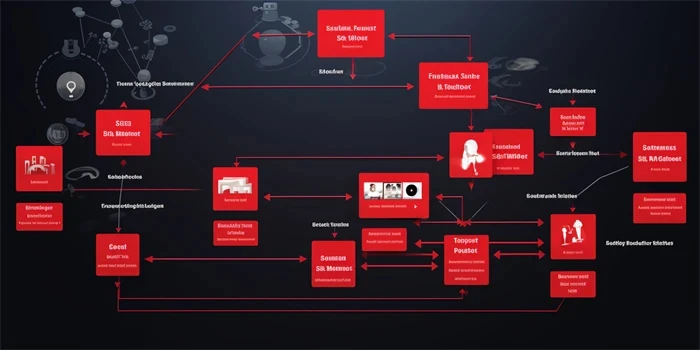Artificial Intelligence (AI) has revolutionized the way we live, work, and now, even shop. With AI-powered algorithms and machine learning capabilities, personalized shopping experiences have taken center stage in the retail industry. From tailored product recommendations to virtual shopping assistants, AI is shaping the future of retail in remarkable ways. In this article, we will explore the various ways AI empowers personalized shopping experiences.

1. Enhanced Customer Insights
AI enables retailers to gather and analyze vast amounts of customer data. By leveraging machine learning algorithms, retailers can understand customer preferences, shopping patterns, and behavior. This enables them to offer personalized recommendations and targeted promotions based on individual customer needs.
2. Precise Product Recommendations
AI algorithms can analyze customer browsing and purchase history, as well as real-time data from various sources, to provide accurate product recommendations. This helps customers discover relevant products quickly, improving their overall shopping experience.
3. Virtual Shopping Assistants
Virtual shopping assistants powered by AI can provide personalized guidance and support to customers. Through natural language processing, these assistants can understand customer queries and provide tailored recommendations, product information, and even style advice.
4. Visual Search Technology
AI-driven visual search technology allows customers to find products by uploading images or using their phone’s camera. This technology analyzes the image, identifies the product, and displays similar or matching items, making the shopping experience more convenient and engaging.
5. Augmented Reality (AR) Applications
AR technology combined with AI enables customers to virtually try on clothes, visualize furniture in their homes, or see how different makeup looks on their face. By providing a realistic and immersive experience, AR enhances the decision-making process and minimizes the need for physical product testing.
6. Chatbots for Customer Support
AI-powered chatbots offer round-the-clock customer support, answering frequently asked questions, resolving issues, and providing personalized assistance. These chatbots streamline customer interactions and improve response times, enhancing the overall shopping experience.
7. Dynamic Pricing Optimization
AI algorithms analyze real-time market data, customer demand, and competitor prices to optimize pricing strategies dynamically. This helps retailers offer personalized discounts, promotions, and pricing models, ensuring competitive pricing while maximizing profitability.
8. Fraud Detection and Prevention
AI algorithms can detect and prevent fraud attempts by analyzing patterns in customer behavior, transaction history, and external data sources. This ensures a secure and trustworthy shopping experience for customers, protecting both retailers and consumers.
9. Social Media Analytics
AI-powered social media analytics tools allow retailers to track and analyze customer sentiment, engagement, and feedback. This valuable data helps retailers understand customer preferences, interests, and trends, enabling them to tailor their marketing strategies and product offerings accordingly.
10. Seamless Personalization Across Channels
AI enables retailers to provide a consistent personalized experience across various channels, including websites, mobile apps, social media platforms, and even physical stores. This seamless integration enhances customer loyalty and satisfaction, driving repeat purchases.
11. Voice-Activated Shopping
Voice assistants like Amazon’s Alexa and Google Assistant are leveraging AI to enable voice-activated shopping experiences. Customers can simply use voice commands to add items to their shopping cart, reorder products, and get personalized recommendations, making shopping even more effortless.
Frequently Asked Questions:
Q: Is AI-powered personalized shopping only for online retailers?
A: No, AI-powered personalized shopping can be implemented by both online and brick-and-mortar retailers. Physical stores can leverage AI technologies to enhance the in-store experience and provide tailored recommendations to customers.
Q: Is AI-powered personalized shopping secure?
A: Yes, AI algorithms help in fraud detection and prevention, ensuring a secure shopping experience. Additionally, retailers adhere to strict privacy and data protection regulations to safeguard customer information.
Q: Can AI completely replace human interaction in shopping?
A: While AI can enhance and streamline the shopping experience, human interaction still plays a critical role in certain cases. Many customers value personalized assistance and support from knowledgeable sales associates.
References:
1. Smith, L. (2021). AI in Retail: 9 Current Applications. Aibusiness.com. [Online]. Available at: https://aibusiness.com/ai-in-retail/
2. Jiang, H., Li, Z., Zhang, Z. et al. (2020). Applying Artificial Intelligence in the Retail Industry. IEEE Access, 8, 44728-44738.
3. Chui, M., Manyika, J., & Miremadi, M. (2016). Where machines could replace humans—and where they can’t (yet). McKinsey Quarterly. [Online]. Available at: https://www.mckinsey.com/business-functions/mckinsey-digital/our-insights/where-machines-could-replace-humans-and-where-they-cant-yet


